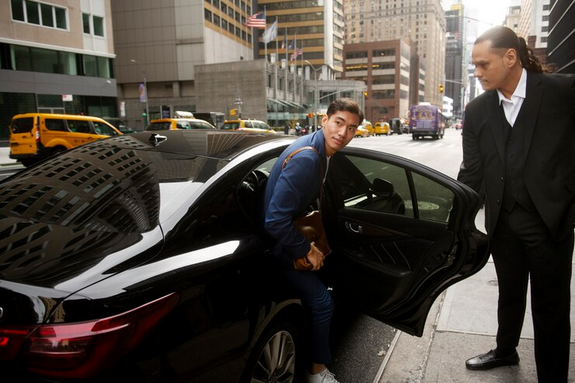Introduction:
Transportation is the lifeblood of any urban center, connecting residents, visitors, and businesses to essential services, amenities, and opportunities. In Arlington, VA, a diverse range of transportation services caters to the needs of commuters, tourists, and residents alike, unlocking convenience and accessibility in this vibrant city. This article explores the various transportation services Arlington, VA, highlighting their features, benefits, and contributions to the city's mobility ecosystem.
Public Transit: The Backbone of Urban Mobility:
Public transit serves as the backbone of Arlington's transportation network, providing residents and visitors with affordable, efficient, and sustainable mobility options. Arlington Transit (ART) buses, Metrobus routes, and the Washington Metropolitan Area Transit Authority (WMATA) Metrorail system offer comprehensive coverage across the city and its surrounding areas, facilitating seamless connectivity to key destinations, employment centers, and recreational amenities.
Key features of public transit services in Arlington include:
Accessibility: Public transit services are designed to accommodate passengers of all abilities, with wheelchair-accessible vehicles, priority seating, and audible announcements to ensure inclusivity and convenience for individuals with disabilities.
Frequency and Reliability: ART buses and Metrobus routes operate on regular schedules, with frequent service during peak hours and extended operating hours on weekends, providing commuters with reliable transportation options throughout the day and evening.
Affordability: Public transit offers an affordable alternative to private car ownership, with discounted fares for seniors, students, and individuals with low incomes, making it an accessible and cost-effective mode of transportation for all members of the community.
Ridesharing and Carpooling: Flexible and Convenient Mobility Solutions:
Ridesharing and carpooling platforms have transformed the way people commute and travel, offering flexible, on-demand transportation options that complement traditional public transit services. In Arlington, popular ridesharing services such as Uber and Lyft provide residents and visitors with convenient door-to-door transportation, while carpooling initiatives like Commuter Connections promote sustainable commuting practices and reduce traffic congestion.
Benefits of ridesharing and carpooling in Arlington include:
Flexibility: Ridesharing and carpooling platforms offer passengers the flexibility to request rides on-demand, track their driver's location in real-time, and choose from a range of vehicle options to suit their preferences and group size.
Cost Savings: By sharing rides with others, passengers can split the cost of transportation, making ridesharing and carpooling a cost-effective alternative to driving alone or taking a taxi, particularly for short-distance trips within the city.
Environmental Impact: Ridesharing and carpooling help reduce greenhouse gas emissions and alleviate traffic congestion by promoting shared transportation and reducing the number of single-occupancy vehicles on the road, contributing to a more sustainable and eco-friendly urban environment.
Bike Sharing and Micro-Mobility: Pedaling Towards Sustainable Transportation:
Arlington's bike-sharing and micro-mobility programs offer residents and visitors an active and environmentally friendly way to navigate the city's streets, parks, and trails. With an extensive network of bike lanes, multi-use paths, and designated bike-sharing stations, Arlington encourages cycling as a viable mode of transportation for short-distance trips and recreational outings.
Advantages of bike sharing and micro-mobility in Arlington include:
Health and Wellness: Cycling promotes physical activity, improves cardiovascular health, and reduces stress, offering riders a convenient and enjoyable way to incorporate exercise into their daily routines while exploring Arlington's scenic landscapes and urban attractions.
Convenience: Bike-sharing programs provide users with convenient access to bicycles at designated stations throughout the city, enabling them to pick up and drop off bikes at their leisure without the hassle of storing or maintaining personal bicycles.
Last-Mile Connectivity: Bike sharing and micro-mobility complement existing transit services by providing a convenient solution for "last-mile" connectivity, allowing commuters to complete their journeys from transit stops to their final destinations quickly and efficiently.
Conclusion:
In conclusion, the diverse array of transportation services available in Arlington, VA, reflects the city's commitment to enhancing mobility, accessibility, and sustainability for residents and visitors alike. Whether by public transit, ridesharing, carpooling, or bike sharing, individuals can navigate Arlington's streets with ease and convenience, unlocking opportunities to explore, commute, and connect with the vibrant communities and attractions that define this dynamic city. By embracing innovative transportation solutions, promoting shared mobility, and investing in infrastructure improvements, Arlington continues to pave the way towards a more connected, accessible, and livable urban environment for all.





Comments